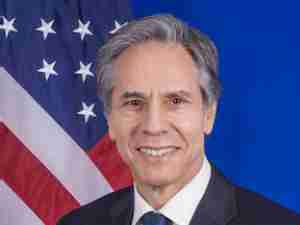U.K.’s Post-Brexit Downgrade on Display This Week: Brussels Beat
By: Jonathan Stearns | Sep 12 2016 at 03:05 AM | International Trade
Prime Minister Theresa May insists that Britain will be a “strong player and a strong voice” in the European Union for as long as it remains a member, yet signs of the U.K.’s waning EU clout will be on full display this week.
Julian King, the U.K.’s new appointee to the European Commission in Brussels, will appear on Monday at a confirmation hearing on his designated role as EU counter-terrorism chief—a slim, freshly created portfolio that’s being squeezed between existing commissioners. King, plucked from Paris where he was U.K. ambassador, fills a national spot vacated by Jonathan Hill, who held the heavyweight post of EU financial-services commissioner.
Hill resigned after the June referendum decision to quit the EU, signaling Brexit made it impossible for him to remain the European regulator in charge of banking centers including London. Commission President Jean-Claude Juncker gave Hill’s responsibilities to the EU commissioner from Latvia in charge of the euro and carved out a special job for King.
All European commissioners are equal, but some are more equal than others. That’s because the power of the portfolios differs widely depending on the extent of the commission’s regulatory reach over EU nations. Suffice it to say that anti-terrorism policy, long a bastion of national sovereignty, isn’t close to being a top-tier EU responsibility.
King’s confirmation hearing will take place in the civil-liberties committee of the European Parliament in Strasbourg, France, on Sept. 12 from 7 p.m. until 10 p.m. Don’t assume it’ll be all smooth sailing for King no matter how well briefed he is. The EU Parliament has a habit of seeking the scalp of a designated commissioner or two as a way to flex political muscle. Juncker’s announcement of the job for King—it’s officially called “commissioner for the security union”—prompted rumblings from some European lawmakers that he was unsuitable for the post because it touches on EU home-affairs policy, an area where Britain has had an opt-out.
State of the Union
Juncker himself takes center stage two days later in the EU Parliament for his annual “State of the Union” speech. The title borrows from U.S. presidential custom in a bid to convey gravitas on the part of the commission leader, who in reality has nowhere near the heft of America’s chief executive. The traditional Strasbourg location of the event puts the spotlight on an EU assembly that suffers bouts of inferiority even though its legislative powers have grown significantly over the past four decades.
This year the focus will be as much on the future state of the EU without Britain as it is on the current state of the bloc. While waiting for the U.K. to trigger the Brexit process, the EU is keeping its fingers crossed that Turkey upholds an agreement to keep out Mideast refugees and counting on European Central Bank monetary easing to help prevent a renewed euro-area financial crisis.
For more on the EU’s deliberations in light of the Brexit vote, click here
Juncker, due to speak on Wednesday at 9 a.m., intends to outline policy areas ranging from defense to investment where Brexit will facilitate new EU initiatives because it’ll mean no more resistance from the U.K., a longstanding opponent of supranational expansion.
Juncker’s ideas will form the basis of the week’s most conspicuous proof of the high political cost of Brexit for the U.K.: a Sept. 16 meeting of the leaders of all other EU nations.
Bratislava Summit
The one-day gathering in Bratislava, Slovakia, will mark the first EU summit at which the U.K. won’t be represented since it joined the bloc 43 years ago. The goal is to brainstorm about EU life after Brexit.
Last year, at the height of Greece’s financial crisis and speculation of the country’s possible exit from the 19-nation euro area, the region’s finance ministers held part of a meeting in Brussels without their Greek counterpart. The unprecedented move was meant as much to shock the anti-austerity Greek government into changing fiscal course as it was to plan for Grexit.
In Bratislava, few if any EU leaders will be trying to alter Britain’s path out of the bloc. Expect them instead to stress the potential for renewed EU political impetus from Brexit.









